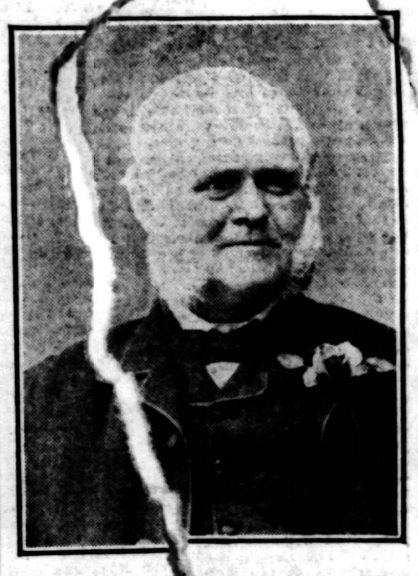Death of Mr. Aaron Miller of Hurst
Stalybridge Reporter
Saturday 25 November 1911

A Strenuous Liberal and a Temperance Worker.
The death took place on Tuesday morning of Mr. Aaron Miller, of 51, Smallshaw-lane, Hurst. Mr. Miller, who was eighty-three years of age, had had remarkably good health, but intimation of the death of a grandson, Mr. Reg. Pearce, in America, was a great shock to him. He was a familiar figure in Hurst and Ashton.
Mr. Miller was born in Hurst in 1828. In 1841 he became an apprentice to the clogging trade, and after eight years began the trade of coffin making. In 1854 he commenced business as a clogger and coffin maker. After a quarter of a century he retired from business. In his early days he took a very keen interest in politics, and advanced the cause of Liberalism. He was elected a member of the General Council of the Liberal party in Ashton, and was a member of the Executive Council with the late Mr. Arthur Reyner and others. He was a member of the Hurst administrative body when it was a Parish Council. On many occasions he was invited to become a candidate for the Hurst Local Board, but pressure of business at that time prevented him. In social and club life in earlier years he was an attractive personality, and was attached to the Central Liberal Club, Ashton, and the Queen-street Liberal Club, Hurst, and was highly esteemed by all who knew him. He had always been fond of reading, and had a retentive memory. His interest in historical matters was well known, and he was regarded as an authority on local historical knowledge. Possessing a facile pen, he was a frequent contributor to the press, and many of his articles were published in the "Reporter." He was one of the founders of the Hurst Brook Mutual Improvement Society, which became extinct in 1868. He was also one of the early pioneers of the Hurst Brook Co-operative Society, and was on the Management Committee for some years. Mr. Miller was a keen temperance advocate, and did a great deal of temperance work.
He often spoke of the election at Ashton on the passing of the Reform Act in 1832. There were hustings at the bottom of a wide passage between the old workhouse and the "lock-up" in Market-street. There were three candidates, Colonel Williams (Radical), Helps (Conservative), and Hindley (Whig), and the Radical was returned, the figures being Williams 176, Hindley 163, Helps 33. In the middle of the nineties Mr. Miller ably championed the cause in favour of the non-consecration of a portion of the Hurst Cemetery, and his opponent was the then curate of Hurst, the Rev. W. A. Parry, now vicar of St. James' Church, Ashton. At that time each argued their respective views very strongly, but their personal relations were unimpaired, both being the closest of friends.
Mr. Miller leaves a widow, two sons, and two daughters.
The flags at the Central Liberal Club, Ashton, and the Queen-street Liberal Club, Hurst, have been flying at half-mast.
The funeral took place yesterday (Friday) afternoon, at Hurst Cemetery.